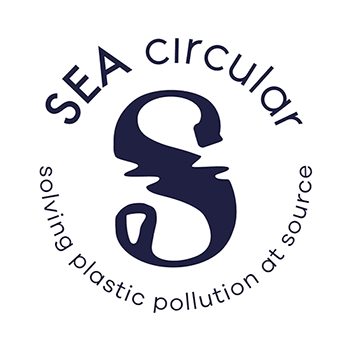
5 June 2020, Bangkok, Thailand: This World Environment Day 2020, UNEP is drawing attention to biodiversity loss and protection, and calling on communities, businesses, organisations and governments to act #ForNature.
Plastic pollution has a direct and deadly effect on wildlife and on biodiversity. Thousands of seabirds and sea turtles, seals and other marine mammals are killed each year after ingesting or getting entangled in plastic waste.
More than 700 species of marine animals have been found with traces of plastics in their digestive tracts. Coral reefs have been deemed 89% more likely to develop disease in the presence of plastic.
It is predicted that by 2050, the oceans will have more plastic than fish – causing incalculable damage to ecosystems, biodiversity and the entire marine and coastal environment.
Microplastics (less than 1-5 millimetres diameter) are accountable for almost 95% of plastics extracted from seabirds. It is thought that that microbeads enter fish through their gills, before becoming trapped in their vital organs and brains. Nanoplastics (typically ranging around 200 nm in size) are even able to enter through cell walls, making them an exceptional risk to marine life. One source of nanoplastics is cigarette butts which release plastic fibres – and cigarette butts are found in their thousands on beaches in South-East Asia.
Fast growing cities in South-East Asia are responsible for as much as 60% of plastic waste leakage into the environment. 75 per cent of land-based sources of marine plastic pollution in the region originates from uncollected waste and 25% from leakages in the municipal waste management systems. Plastic pollution is also transboundary – up to 95% of plastic in our ocean is transported by ten major rivers, eight of which are in Asia.
SEA circular works to solve plastic pollution at source. In a recently published series of Country Profiles, the project has gathered the data from nine countries in South-East Asia in 2020, and provided in-depth analysis, to understand more about the drivers and actions around plastic wastage and leakage in Cambodia, Indonesia, Malaysia, the Philippines, China, the Republic of Korea, Singapore, Thailand and Viet Nam
The SEA circular series outline issues of environmental and biodiversity threats, waste management, leakage throughout the plastic value chain, as well as the policy framework to tackle the issue. Data on components and amounts of plastics collected at coastal clean-ups are compiled – to understand more about the causes and impacts at a national level.
SEA circular is working in South-East Asia to inspire market-based solutions and encourage enabling policies to prevent marine plastic pollution. The project supports more sustainable production and consumption and associated technological developments, to respond to and address the marine plastic pollution crisis – acting #ForNature this #WorldEnvironmentDay 2020.
View selected World Environment Day 2020 events on the marine environment, plastic pollution and waste management
World Premier of “Across The Ocean” by Karsh Kale
Fri 5 Jun 8:00am – 4:30pm (+07)
Online Event Location: Facebook
Webinar-Waste Management: A threat to biodiversity
Fri Jun 5th 3:00pm – 4:00pm (+07)
WEBINAR: WASTE MANAGEMENT A THREAT TO BIODIVERSITY
Time for coral : How you can help save an entire ecosystem
Fri Jun 5th 6:00am – Mon 8th 3:00am (+07)
New Solutions to Plastic Pollution
Mon 8 June 12:00am – 1:30am (+07)
Host: The Natural History Museum & the Voice for Nature Foundation
WEBINAR: NEW SOLUTIONS TO PLASTIC POLLUTION
Launch of The State of the World Fisheries and Aquaculture
Mon 8 June 6:00pm – 7:30pm (+07)
Host: Food and Agriculture Organization of the United Nations (FAO)
LAUNCH: STATE OF THE WORLD FISHERIES AND AQUACULTURE
Act #ForNature Forum – Turning the Tide on Marine Plastics: How UNEA-5 can be a turning point (Open meeting)
Mon 8 Jun 9:00pm – 11:00pm (+07)
Host : UNEP
Bootcamp – Learn how to fight plastic pollution and become an Ocean Hero!
Fri 26 June – Sun 12 July (+07)
#oceanheroes
Host: Ocean Heroes Bootcamp (OHBC)
BOOTCAMP: FIGHT PLASTIC POLLUTION
World Environment Day is celebrated every year on 5 June to focus the world’s attention on a pressing environmental issue. The Day strives to raise awareness and encourage action for the environment. It offers an opportunity to reflect on accomplishments and renew our resolve in overcoming the environmental challenges facing the world today.
Human activities such as pollution, unsustainable use of land and sea, exploitation of organisms, climate change and invasion of alien species, are leading to biodiversity breakdown and the decline and degradation of natural ecosystems at an unprecedented scale.
news

